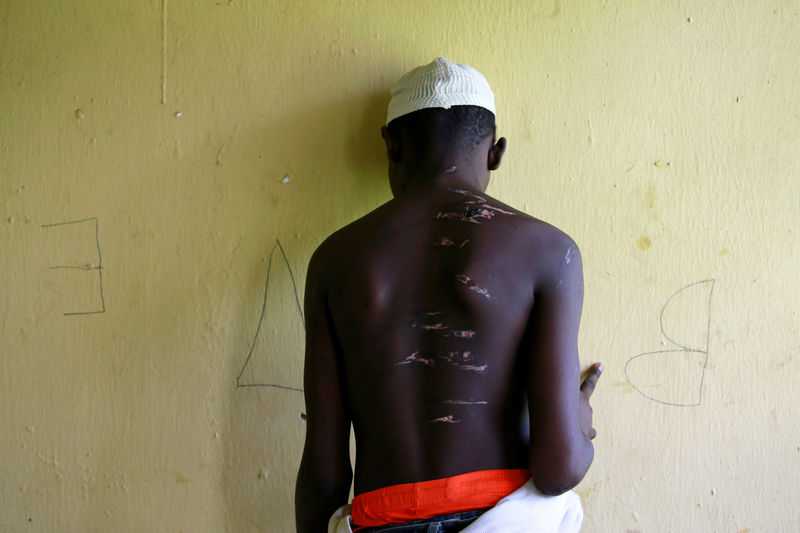Victims of Nigerian institution share stories of terror
01 October, 2019

When Jibril had tried to escape as a boy from an institution in Nigeria that called itself a place of Islamic teachings, he said he was hung up by his arms until bones in his shoulders broke.
Another teenager, one of about 400 men and boys freed in Thursday’s police raid, said boys were often kept in chains and those caught stealing food were whipped until they bled.
“They used car engine belts and electrical cables to flog us,” 15-year-old Suleiman told Reuters, staring at the floor. “Teachers used to sexually harass us ... They tried to loosen my pants once but I fought them off and was beaten.”
Horror stories are emerging about life in a two-story house in Nigeria’s northern city of Kaduna as the authorities try to find families of the victims who often spent years at the site.
Police arrested seven adults in the raid on the building, which had a sign in Arabic at the entrance declaring itself “House of Imam Ahmad Bin Hanbal for the Application of Islamic Teachings.”
Some parents paid fees, believing it was an Islamic school. Some described it as a good institution and dismissed talk of abuse. Others saw it as a correctional facility. Police and regional officials said it was not registered as either.
Despite mixed accounts about its role, the abuse reported by victims has thrown a spotlight on Nigeria’s struggle to provide enough school places for its rapidly expanding population, leaving a gap for unregulated institutions that poor parents sometimes turn to.
The West African nation’s population will swell from 190 million to 400 million by 2050, according to U.N. figures. Primary education is officially free, but about 10.5 million Nigerian children age 5 to 14 are not in school.
“Nigeria is facing a demographic tidal wave,” said Matthew Page, an associate fellow with the Africa Programme at Britain’s Royal Institute of International Affairs.
“The long-term viability of the Nigerian economy — and the state itself — hinges on the government, religious, and traditional institutions developing a plan to address this challenge before it becomes impossible to remedy,” he said.
Prior to Thursday’s police raid, those who made it out of the Kaduna institution were sometimes returned by families. Some parents said they needed to discipline wayward children and others said they were too poor to look after all their kids.
The Kaduna state government said there were at least 77 boys under 18 years old held there. The youngest was five.
